Over 30 years of anarchist writing from Ireland listed under hundreds of topics
Review
Chavs: The Demonization of the Working Class by Owen Jones
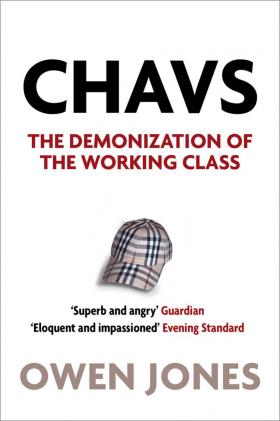 Released in Summer 2011 and now in its second edition, Chavs is Owen Jones' attempt to help rescussitate debate around class within mainstream outdated concept and political discourse.
Released in Summer 2011 and now in its second edition, Chavs is Owen Jones' attempt to help rescussitate debate around class within mainstream outdated concept and political discourse.
Broadly speaking, it is focused on the fate of working class communities in Britain since the Thatcher era and the disappearance of working class political representation, and puts forward some possible ideas to envision a renewed class politics for today. The book has proven a popular one and has propelled its author's public status as a prominent left-wing commentator, and one of the main voices of initiatives to reclaim the Labour Party as a working class organisation.
Pushers Out! - The inside story of Dublin's anti-drugs movement
Walk five minutes from O'Connell St, Dublin's main thoroughfare, or five minutes from Christ Church Cathedral, an important tourist attraction, and you will find yourself in a very different world from that depicted in the tourist brochures. Pushers Out tells the story of how people living in the North Inner City and the South Inner City (and later the suburbs, and some small towns) organised to save their communities from heroin. Not relying on the state to solve their problems, they started to organise themselves. One such working class organisation is Coalition of Communities Against Drugs (COCAD).
No Global - The People of Ireland Versus the multinationals
Essentially it is an account of the various environmental clashes that have taken place in Ireland since the mid-70s when the Irish Government's policy of attracting multinational corporation into Ireland - in particular in the chemicals and pharmaceuticals sector - moved into full swing. In terms of being a record of these many struggles, No Global is a very useful compendium with a lot of first hand information as well as useful analysis. The author was involved in some of the events he addresses and this adds a particular validity to the account.
The Dunnes Strike & Managing Change - the two souls of the trade union
For three weeks, in June-July 1995, nearly 6,000 mostly young and part-time workers struck against Ireland's largest private sector employer, the firmly anti-union Dunnes Stores, over Sunday trading, zero-hours contracts, the proportion of full-time jobs and other issues. But the principal, and unstated, issues were probably union recognition and the organisation of the newly emergent semi-casual, part-time, young (and mainly female) section of the labour force. The result, while disappointing on the concrete 'economic' issues, was generally greeted as something of a breakthrough on the latter 'political' issues.
Union activists are facing new management attacks but the trade union leadership speaks only of partnership with the bosses. Des Derwin, member of the Executive of the Dublin Council of Trade Unions and of the Dublin Private Sector Regional Executive Committee of SIPTU gives his personal view on the two souls of the unions.
The Next Global Crash? On China and the 21st Century Crisis
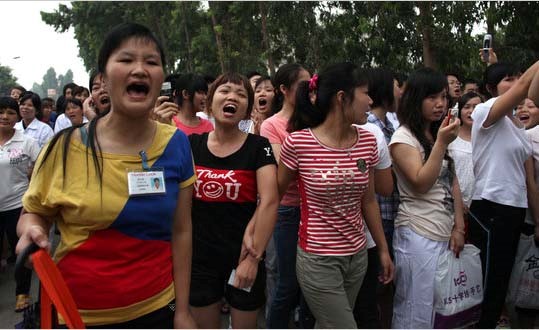 Today, China is the driving engine of global economic growth. A major crisis of the Chinese economy will almost certainly drag the global economy into the next recession in the 2020s. This may turn out to be far more damaging than the Great Recession of 2008.
Today, China is the driving engine of global economic growth. A major crisis of the Chinese economy will almost certainly drag the global economy into the next recession in the 2020s. This may turn out to be far more damaging than the Great Recession of 2008.
Minqi Li is a political economist at the University of Utah and an advocate of China’s Maoist New Left [1]. His most recent book, ‘China and the 21st Century Crisis’, outlines capitalism’s next looming crisis. Regardless of the proximate cause, this coming crisis will be economic, political, and ecological. It will also be global.
Review - To Keep a Bird Singing, a novel by Kevin Doyle
A man adrift in the doldrums of the last great crisis finds his stolen punk records. Noelie Sullivan by simply reclaiming his discs sets off a chain of events which quickly unravels his life and puts him and all who know him in danger.
Review: Jordan Peterson in Dublin - not the type of talk the audience had envisaged
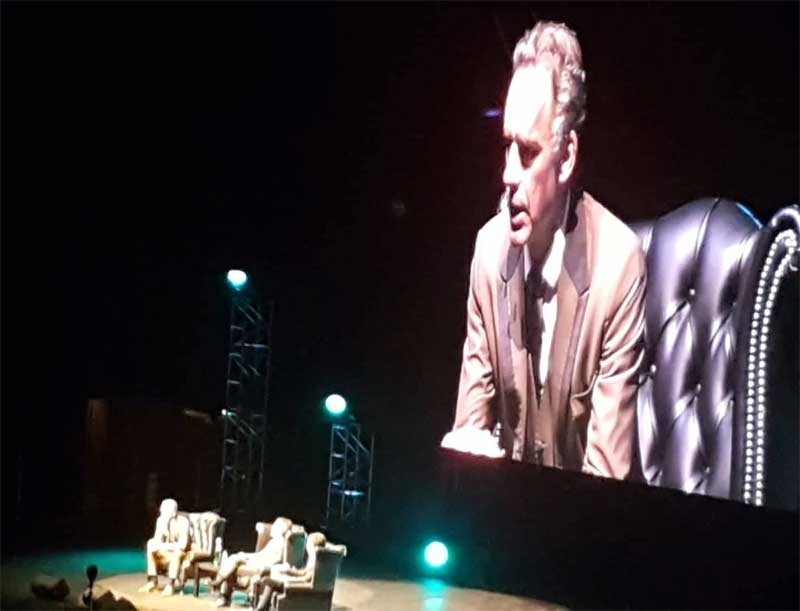 Saturday 14th July we checked out the Dublin appearance of Youtube snake oil salesman Jordan Peterson. Peterson over the last couple of years has developed a sizable following of angry young white men through Youtube videos consisting of incomprehensible lectures on ‘meaning’ and, more disconcertingly, anti-trans, anti-feminist, and anti-leftist rants. We expected it to attract many of the small fascist groups and those in orbit around them, indeed there were even ‘Men’s Rights Activists’ leafleting outside it, presumably having identified it as a recruiting ground for their poisonous misogyny.
Saturday 14th July we checked out the Dublin appearance of Youtube snake oil salesman Jordan Peterson. Peterson over the last couple of years has developed a sizable following of angry young white men through Youtube videos consisting of incomprehensible lectures on ‘meaning’ and, more disconcertingly, anti-trans, anti-feminist, and anti-leftist rants. We expected it to attract many of the small fascist groups and those in orbit around them, indeed there were even ‘Men’s Rights Activists’ leafleting outside it, presumably having identified it as a recruiting ground for their poisonous misogyny.
Democracy - The Art of Re-making Society
 David Graeber’s excellent insider account of the occupation of Wall Street [1] offers us an insight into what form the politics of resistance needs to take. It will be dual purpose, having to both build resistance and also build anew. It will be about renewal, hope and learning. Crucially, how you build resistance will inform and shape what is to follow. It will entail democracy being built from ground zero.
David Graeber’s excellent insider account of the occupation of Wall Street [1] offers us an insight into what form the politics of resistance needs to take. It will be dual purpose, having to both build resistance and also build anew. It will be about renewal, hope and learning. Crucially, how you build resistance will inform and shape what is to follow. It will entail democracy being built from ground zero.THE WORMS THAT SAVED THE WORLD - a review of a brilliant children's book
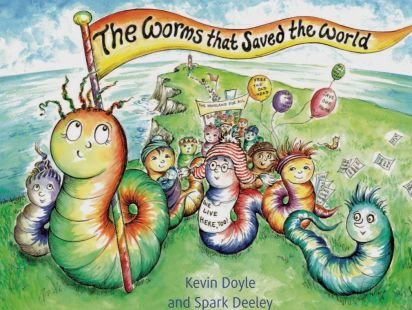 THE WORMS THAT SAVED THE WORLD is an illustrated children’s book about a rebellious group of earthworms who fight to save their home from a luxury golf course that takes over their headland. Written by Kevin Doyle and illustrated by Spark Deeley, the book introduces us to Connie and her friends as they band together to save their community and their home.
THE WORMS THAT SAVED THE WORLD is an illustrated children’s book about a rebellious group of earthworms who fight to save their home from a luxury golf course that takes over their headland. Written by Kevin Doyle and illustrated by Spark Deeley, the book introduces us to Connie and her friends as they band together to save their community and their home. Rojava: a new world in our hearts?
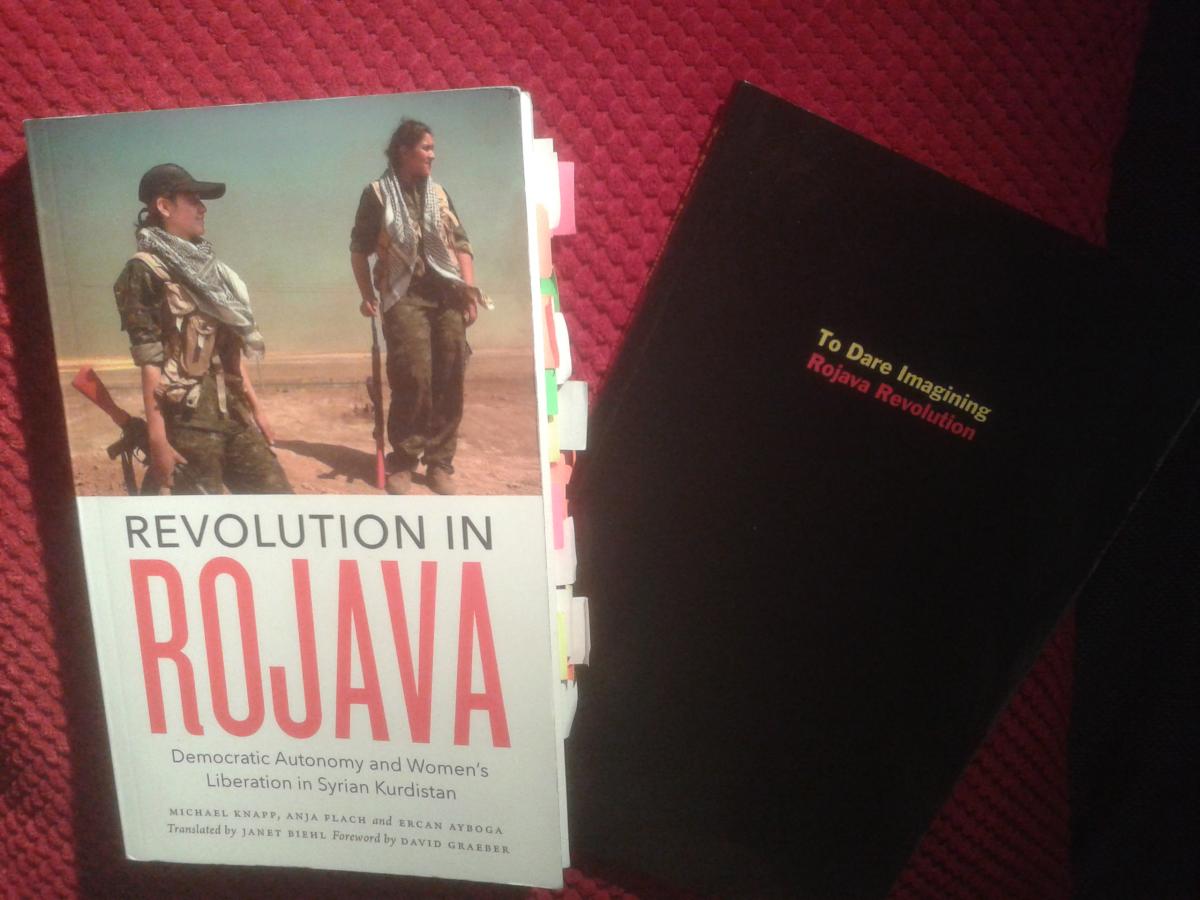
War is hell. In September 2015, the heartbreaking image of Alan Kurdi went viral. The picture of the little Syrian-Kurdish boy lying face down on Ali Hoca beach in Turkey highlighted Fortress Europe’s racist response to those refugees fleeing conflict in the Middle East. Abdullah Kurdi, Alan’s father, returned to Kobane to bury his wife and two sons. He wrote to the world: ‘I am grateful for your sympathy for my fate. This has given me the feeling that I am not alone. But an essential step in ending this tragedy and avoiding its recurrence is support for our self-organisation’. Kurdi was referring to the emergent experiment in popular democracy sweeping Rojava, the most hopeful thing to have happened in the Middle East for a very long time. A popular, anti-authoritarian rebellion is struggling against the death-world of capitalist modernity. And for now, it seems to be winning.

